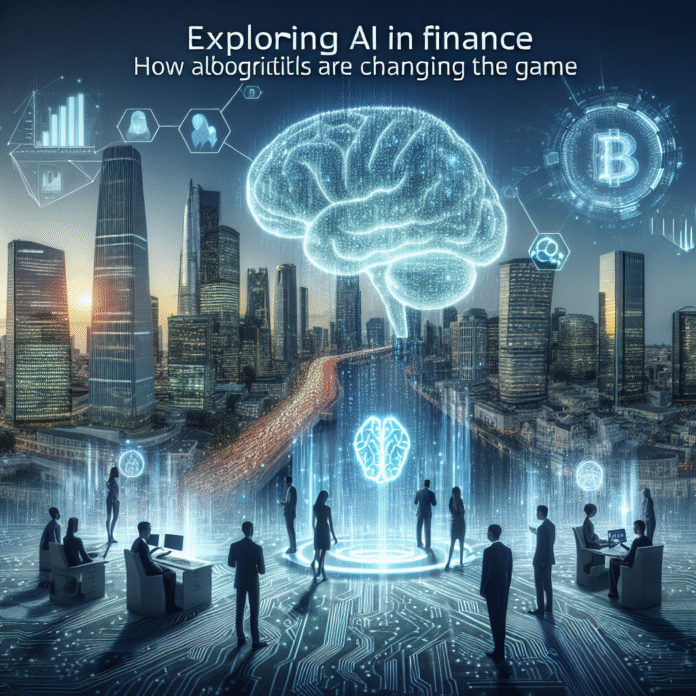Exploring AI in Finance
Introduction
The finance industry is undergoing a remarkable transformation driven by advancements in artificial intelligence (AI) and machine learning algorithms. From investment strategies to risk management, AI is reshaping how financial institutions operate and how consumers interact with their finances. This article delves into the impact of AI technologies in finance and highlights the significant shifts in the landscape.
The Rise of Algorithms
In recent years, algorithms have become a staple in financial markets. Automated trading systems now execute trades at lightning speed, analyzing vast amounts of data in real-time. These systems use complex algorithms to identify patterns, assess risks, and make predictions, often outpacing human analysts.
Investment Management
AI has revolutionized investment management by enabling sophisticated portfolio management techniques. Robo-advisors, powered by algorithms, tailor investment strategies to individual client profiles based on risk tolerance, investment goals, and market conditions. This democratizes access to quality financial advice and has made investing more accessible to the masses.
Risk Assessment and Fraud Detection
Risk assessment processes have also evolved thanks to AI. Algorithms can analyze historical data to predict potential risks associated with investments and loans. Furthermore, financial institutions are leveraging machine learning for fraud detection. AI systems continuously learn from transaction patterns, identifying anomalies and flagging suspicious activities, thereby enhancing security and reducing losses.
Personal Finance Management
Consumers are now greeted with AI-powered personal finance tools that simplify budgeting, spending tracking, and savings. These applications analyze user spending habits and provide insights to optimize financial health. Some even use predictive analytics to forecast future expenses, helping users to plan more effectively.
The Future of AI in Finance
As AI technology continues to advance, its applications in finance will only grow. Quantum computing, blockchain integration, and enhanced data analytics promise even more innovative solutions. However, ethical considerations and regulatory frameworks must keep pace with these developments to ensure consumer protection and data privacy.
Conclusion
AI is undoubtedly changing the game in finance, offering opportunities for enhanced efficiency, improved decision-making, and personalized experiences for consumers. As the financial landscape continues to evolve, embracing AI technologies will be crucial for institutions aiming to stay competitive and serve their customers effectively.







